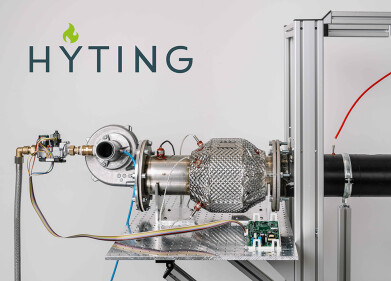Green energy
How Can Hydrogen Help Reduce Pollution?
Dec 10 2018
Hydrogen has an important role to play in decarbonising emissions across a variety of different sectors including heating, transport, industry and power generation, according to a new report from the Climate Change Committee (CCC). If used in conjunction with energy-efficiency heat pumps and expanded reliance on renewable energy sources, hydrogen could eventually displace fossil fuels as a major energy source of tomorrow.
However, in order to be both cost-effective and environmentally-friendly, low-carbon hydrogen would have to be produced on a mass scale and accompanied with carbon capture and storage (CCS) technology. This would most likely be created using natural gas (including shale and potentially biomethane) and would still entail a significant outlay on the government’s part.
Across all sectors
Hydrogen could contribute to reduced carbon emissions across many different sectors, including:
- Heating. There are a number of new green home heating methods in research at the moment, including high-voltage electrode boilers and hybrid heat-pumps. CCC’s report is especially optimistic that hydrogen could function well in conjunction with the latter solution to provide cheap, reliable and low-carbon alternatives to gas.
- Transport. Hydrogen fuel cells are already being used in some environmentally-friendly cars, which use the reaction of hydrogen and oxygen to power the motor. Similar technology could be employed in buses, lorries and trains in the future, as well as lighter vehicles undertaking longer journeys.
- Industry. Industrial heat generation is one of the biggest contributors of carbon to our atmosphere, so a low-carbon hydrogen solution could have a huge impact on the sector’s emissions. It would also be well-suited to reducing emissions in specialised sectors such as the food and drink industry.
- Power generation. As long as natural gas power plants are made “hydrogen-ready”, it could replace the fossil fuel as a primary energy source and work in tandem with the electricity generated by renewable sources.
Challenges ahead
However, if hydrogen is to fulfil its potential as a green energy source of the future, much work will need to be done first. Some of the challenges facing the industry include:
- CCS. Without adequate CCS technology, it will be impossible to achieve low-carbon hydrogen production, which makes the use of the substance more damaging than helpful. At the moment, hydrogen production methods emit huge amounts of carbon and it’s unfeasible to consider using renewables to create hydrogen on a large scale.
- Awareness. At present, the British public have little idea about the existence of alternatives to traditional forms of energy generation and home heating (i.e. gas) and even less grasp of why transitioning to those alternatives is important. As such, educational and awareness-raising campaigns must be enacted.
- Strategy. As yet, the government has not produced a coherent strategy on transitioning away from fossil fuels in the long-term. Creating a bespoke hydrogen plan within the next three years will be imperative in ensuring that the source can act as a viable alternative for gas going forwards.
Events
Feb 05 2025 Nantes, France
Feb 16 2025 Kampala, Uganda
Feb 26 2025 Chennai, India
Feb 26 2025 Tulsa, OK, USA
WATERTECH CHINA (GUANGDONG) 2025
Mar 05 2025 Guangdong, China












